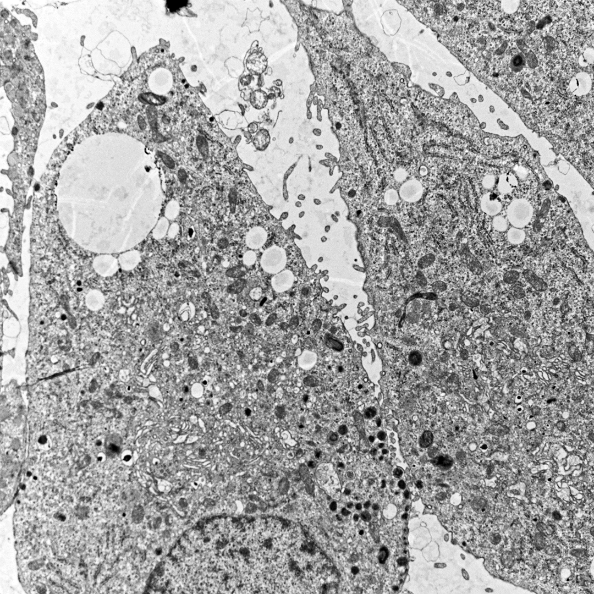Not all unsaturated fatty acids are protective
Fat and sugar are essential nutrients that the body needs to function properly. When consumed in excessive quantity, they can have deleterious effects and increase the risk of developing diabetes. In contrast, some aliments have been considered as protective according to the type of fat they include. Unsaturated fatty acids found in avocados, nuts and salmon might be healthy compared to saturated fatty acids included in butter and meat.
In their recent study published in BBA Molecular Cell Research, scientists of Prof. Pierre Maechler laboratory highlighted that being an unsaturated fatty acid is not sufficient to be healthy. They found that only one out of three unsaturated fatty acids, the oleate, had a strong protective effect on pancreatic cells involved in the diabetes, the insulin-secreting beta-cells. The oleate is found in high concentrations in olive oil and avocados. Its protective effect might arise from its storage in a neutral form, triglycerides, in the beta-cells as visible on the image below.

Electron microscopic image of pancreatic beta-cells with accumulation of neutral lipids (white disks) © unige
The researchers explored the question by exposing pancreatic beta-cells to different fatty acids combined with sugar. Two newly developed methods were particularly useful and allow them to measure membrane fluidity and insulin secretion on living cells.
Posted by: V. Rosset
6 Jan 2020